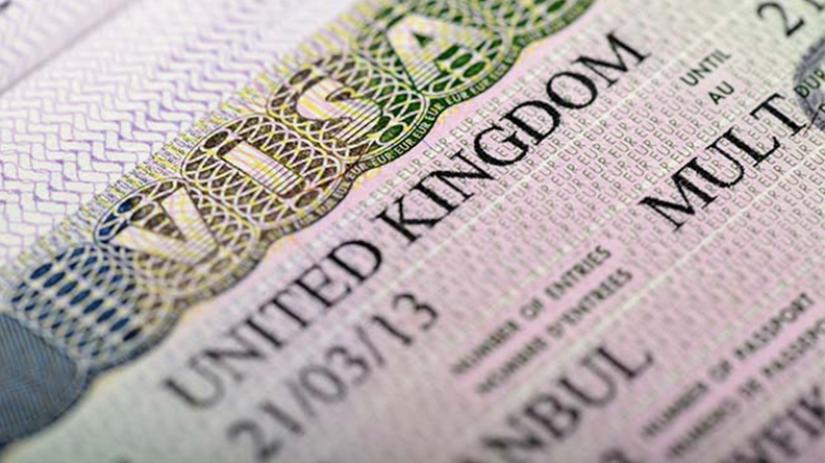 Many Bangladeshis among thousands of overseas students accused of cheating in a compulsory visa-related English language exam have renewed their call for justice this week.
Many Bangladeshis among thousands of overseas students accused of cheating in a compulsory visa-related English language exam have renewed their call for justice this week.
Migrant Voice, a UK migrant group fighting for their rights, renewed the drive as it was informed that UK home secretary Sajid Javid has reviewed the representations related to the case and is expected to announce his decision on their plight soon.
“The core demand is for the UK Home Office/government to allow the students to re-sit the test and those who pass should be: given their visa back, allowed to return to study or work and to drop the criminal allegation against them,” said Migrant Voice Director Nazek Ramadan.
The group had found the backing of many British MPs last year, who set up an All Party Parliamentary Group (APPG) to mount pressure on Javid to “rethink” the government’s handling of the issue. The campaigners want the students to be allowed to re-sit the English exam in order to prove their innocence after a media sting operation exposed cases of fraud in the government-mandated tests back in 2014.
“The treatment of these students has been appalling,” said Opposition Labour Party MP Stephen Timms, who helped set up the APPG dedicated to the cause.
The issue dates back nearly five years, when BBC aired an investigation into colleges offering the Test of English for International Communication (TOEIC) exams and revealed some cases of cheating. The UK Home Office responded by launching an investigation and concluded that 33,725 of the test results were invalid and 22,694 questionable. Those with questionable results were given the chance of review but the others were made to abandon their courses and, in many cases, forced to return to their countries of origin.
Among those fighting for her rights is Fatema from Bangladesh, who had her visa revoked in 2015 after she was wrongly accused of asking someone else to sit her exam. Pregnant with her second child, she is determined to clear her name so that the criminal allegation is not hanging on her head for the rest of her life.
"I cannot be a failure or a loser. I cannot go back to my country just because somebody made a mistake and I should pay for it,” she said.
Another case from Bangladesh is that of Hussain, who was studying computer science in London when he was told by his university in 2014 that he had been withdrawn as the Home Office was accusing him of cheating on the TOEIC test by using a proxy to sit his oral exam.
“I didn’t have any reason to cheat at the TOEIC test. That’s a very simple test,” he said.
His visa was cancelled and he was stripped of his right to work, study or rent a house in the UK. Desperate to clear his name, he set about trying to fight the allegation in the UK courts.
Migrant Voice, which released the ‘I want my future back’ report last year to highlight the plight of many who claim to be wrongly clubbed in the invalid category, estimates nearly 56,000 students were caught up in the scandal. While many have since returned to their countries of origin or forcibly deported, thousands have remained in the UK to fight their cause.
The UK Home Office confirmed that the minister, Sajid Javid, was looking into the issue but did not lay out a timeframe for any resolution to the dispute.
“The 2014 investigation into the abuse of English language testing revealed systemic cheating which was indicative of significant organised fraud,” a Home Office spokesperson said.
“The scale of this is shown by the fact that 25 people who facilitated this fraud have received criminal convictions, including four individuals convicted earlier this month of conspiracy to commit fraud. Since then the Home Office has reformed the system to tackle abuse,” the spokesperson said.
 Others
Others
30894 hour(s) 40 minute(s) ago ;
Morning 01:34 ; Friday ; Apr 26, 2024
Bangladeshis renew call for justice over UK English test
Send
Aditi Khanna, London
Published : 09:11, Apr 25, 2019 | Updated : 09:48, Apr 25, 2019
Published : 09:11, Apr 25, 2019 | Updated : 09:48, Apr 25, 2019
0 ...0 ...
/pdn/
Topics: Top Stories
- KOICA donates medical supplies to BSMMU
- 5 more flights to take back British nationals to London
- Covid19: Rajarbagh, Mohammadpur worst affected
- Momen joins UN solidarity song over COVID-19 combat
- Covid-19: OIC to hold special meeting
- WFP begins food distribution in Cox’s Bazar
- WFP begins food distribution in Cox’s Bazar
- 290 return home to Australia
- Third charter flight for US citizens to return home
- Dhaka proposes to postpone D8 Summit
Unauthorized use of news, image, information, etc published by Bangla Tribune is punishable by copyright law. Appropriate legal steps will be taken by the management against any person or body that infringes those laws.
Bangla Tribune is one of the most revered online newspapers in Bangladesh, due to its reputation of neutral coverage and incisive analysis.
F R Tower, 8/C Panthapath, Shukrabad, Dhaka-1207 | Phone: 58151324; 58151326, Fax: 58151329 | Mob: 01730794527, 01730794528


